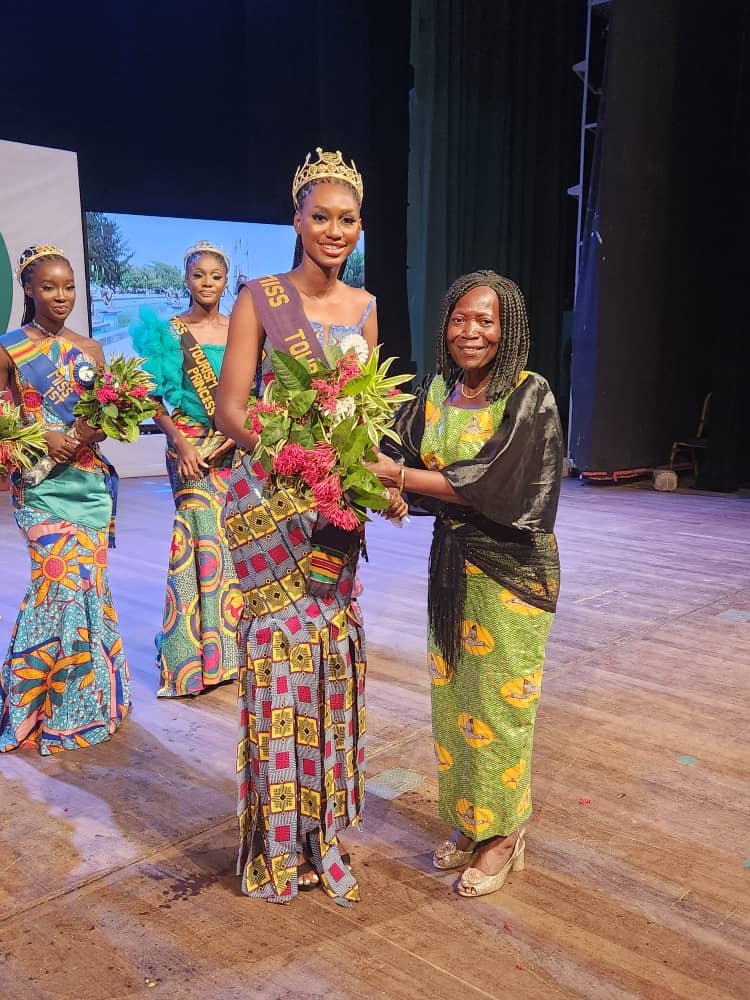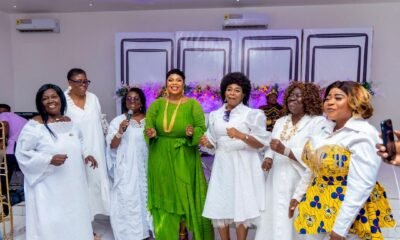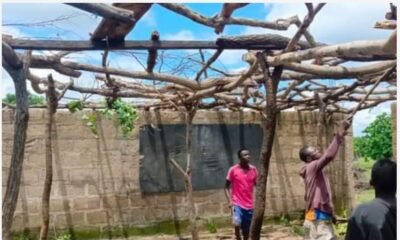News
Champion promotion of Tourism in Ghana- Della Sowah to Miss Tourism Ghana

Member of Parliament (MP) for Kpando, Della Sowah, has charged Miss Tourism Ghana work assiduously to promote Ghana’s tourism.
Portia Akua Mensah, a 20-year-old level 300 student of the University of Ghana, studying Political Science and English was on Friday, September 20, crowned Miss Tourism Ghana 2024.
The grand finale of the event held at the National Theatre on Friday, September 20, marked the end of an era and the beginning of a new reign.
At the end of grueling weeks of encounter, Portia Akua Mensah wrestled the coveted Miss Tourism crown from other eight competitors.
Della made this appeal last Friday after presenting the ultimate prize to Portia Akua Mensah.
According to Della Sowah, this would be the only way the mission and vision of the award scheme would be satisfied.
In her advice to Miss Tourism Princess, she said the sector has the potential of reducing unemployment and contributing significantly to the country’s Gross Domestic Product (GDP).
For this to be realized, she said there is a need for some aggressive marketing and adoption of the right measures to create the necessary awareness both locally and internationally.
Against this backdrop, she urged Akosua to go all out and make the scheme and Ghana proud.
Della Sowah has over the years supported the Miss Tourism scheme to raise passionate young ladies to champion the promotion of tourism in the country and beyond
By Edem Mensah-Tsotorme
News
Man sentenced to 25 years for robbery at Manso Akwasiso

A 30-year-old man has been sentenced to 25 years imprisonment with hard labour by the Bekwai Circuit Court for his role in a 2022 robbery at a mining site at Manso Akwasiso in the Ashanti South Region.
The convict, Dominic Ofori, also known as Fanta, was arrested on 16th February 2026 after years on the run. He pleaded guilty before the Bekwai Circuit Court to robbery contrary to Section 149 of the Criminal Offences Act, 1960 Act 29, and was accordingly sentenced to 25 years imprisonment with hard labour.
On March 20, 2022, the Manso Adubia District Police received intelligence that a group of armed men from Manso Abodom were planning to attack a mining site at Manso Akwasiso to rob the owner of gold concentrate. Acting on the information, police mounted a coordinated operation and laid an ambush at the site.
At about 5:30 pm the same day, four-armed men arrived at the site, fired indiscriminately, and robbed the miners of their gold concentrate. The police team on surveillance intervened, resulting in an exchange of gunfire.
Three of the suspects, Abu Abubakar, Musah Latif, and Gideon Takyi, sustained gunshot wounds and were pronounced dead on arrival at St Martins Catholic Hospital at Agroyesum. Dominic Ofori escaped at the time but was later arrested and put before the court.
The Ashanti South Regional Police Command has assured the public of its continued commitment to combating violent crimes and bringing offenders to justice.
News
Ashanti police arrest man for publishing false news on TikTok

The Ashanti Regional Police Command has arrested 45-year-old Isaac Boafo, also known as “Duabo King,” for allegedly publishing false news intended to cause fear and panic.
Police said the arrest follows a viral TikTok video in which Boafo claimed that four officers at the Central Police Station in Kumasi engaged in inappropriate conduct with commercial sex workers during night patrols in Asafo.
Officers from the Police Intelligence Directorate (Ashanti Region) apprehended Boafo after receiving intelligence about the video.
During questioning, he admitted to creating the video to attract views and engagement online, and acknowledged that he could not prove the allegations.
Boafo also admitted making comments about the President of the Republic for content purposes and could not defend those statements.
He has been formally charged and is in detention as investigations continue.
The Ashanti Regional Police have warned the public against publishing or sharing false information on social media, noting that such acts can cause fear, panic, and damage reputations.
They said anyone found engaging in similar conduct will face legal action.
By: Jacob Aggrey














